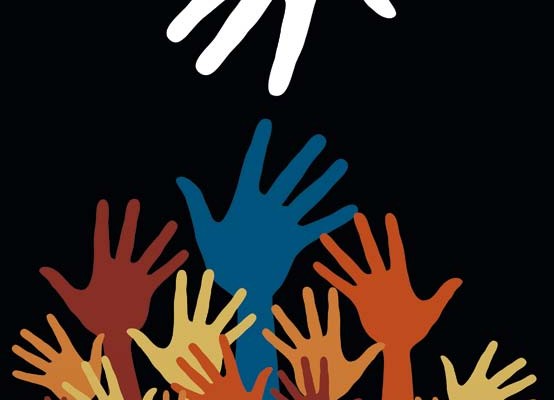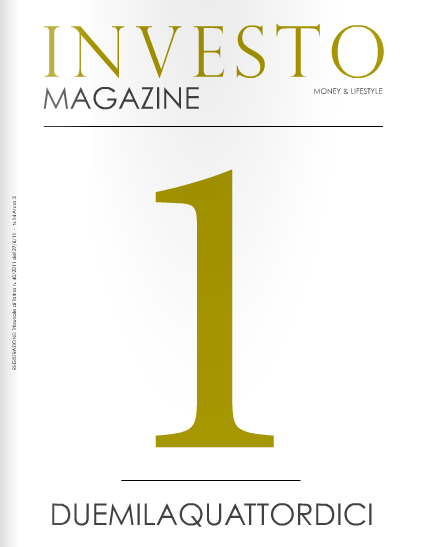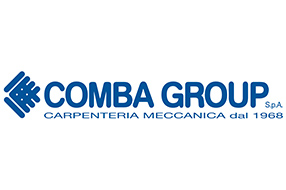in collaboration with Andrea Grippo
Being openly altruistic with somebody is one thing, being altruistic donating anonymously is a different thing. If human beings living in a community were naturally altruistic, this community should not be deeply influenced by how this natural inclination is put into effect. Hence, if individuals would happen to be basically generous they should be generous regardless the presence or the absence of the person receiving the act of generosity. Does our financial contribution to society, which is anonymous, put into effect the same psychological and neurobiological mechanisms of being generous with the person receiving our act of generosity?
The reasons underpinning social contribution may be various. In this regards we distinguish two forms of altruism: pure and impure. The pure altruism pursuit the social well-being, the impure altruism is based on the pleasure coming from contributing to social well-being. In helping others, the human being has the perception of a positive self-image. As a matter of fact, the act of generosity is beneficial both to those who are receiving it and to those who are doing it. Human beings are motivated in being generous by the pleasure and the usefulness resulting from generosity. Therefore, several factors come into play in being generous: the image of oneself, addictive relationships, guilty-feelings and pleasure.
Society works because of taxpayers paying taxes and making donations. Of course if the intentions are moved by pure altruism, the mandatory and anonymous aspects of taxation will have to be taken into consideration, because we pay taxes in the dark and to some unspecified subjects. If, on the other hand, generosity is moved by pleasure and prestige in doing something good for others, the mandatory and anonymous aspects are not valid anymore, as the benefactor wants to be appreciate and recognize for his generosity.
When paying taxes and making donations two parts of our brains are involved: the caudate nucleus and the accumbens nucleus. But this brain activity is greater when making a donation under no obligation. The caudate nucleus and the accumbens nucleus are the same regions of the brain that process any rewards such as food or physical contacts. But we must say that in making a donation under no obligation, as in the case of paying taxes, neuronal activity is detected in the ventral striatum, associated with individual rewards. Therefore paying taxes could be a pleasure similar, as far as brain activities, to a reward. We can now associate the reasons for pure altruism and impure altruism which we have previously separated.
The theory to distinguish between pure and impure altruism has not been yet proven wrong by the latest neuroeconomic discoveries. It is true though, that a greater brain activity is detected in the regions involved in pleasure when donations are under some obligation, even if they are anonymous. There is a greater pleasure in deciding without obligation who should receive your contribution. We could come to the conclusion that the fiscal system should be based on voluntary contribution instead of mandatory taxation. But this cannot be done because people feel good in being under the obligation of paying taxes as they feel to have contributed to the common good. Besides, in a society based on voluntary contribution we could see many defections among those who have decided to let the most generous one to carry the weight of common weal. In doing so, the contribution of few will not bring pleasure but only resentment.
Some interesting conclusions can be drawn in regards to fiscal policies. In order to maximize the reasons for pure altruism and impure altruism, we could determine the balance between voluntary contribution and mandatory taxation. If we think that in the future voluntary contributions will play a major role, this neuroeconomic problem will then become fundamental.
con la collaborazione di Andrea Grippo
Una cosa è essere altruisti in presenza della persona verso la quale ci dimostriamo generosi e un’altra cosa è essere altruisti quando il dono è un atto anonimo. Se gli esseri umani che vivono in una comunità fossero naturalmente altruisti, le modalità con cui si attua questa tendenza naturale non dovrebbero influenzarla profondamente. Insomma, se gli individui fossero fondamentalmente generosi dovrebbero esserlo sia in presenza che in assenza di chi riceve l’atto di generosità. Il nostro contributo finanziario obbligatorio alla società, che è anonimo, attiva gli stessi meccanismi psicologici e neurobiologici della decisione di essere generosi in presenza di chi riceve l’atto altruistico?
Le motivazioni che stanno alla base della contribuzione sociale possono essere di varia natura. A questo proposito si distinguono due forme di altruismo, quello puro e quello impuro. L’altruismo puro persegue il bene sociale mentre quello impuro si basa sul piacere che l’individuo prova nel realizzare quel bene. Quando si fa del bene agli altri, l’essere umano percepisce una valorizzazione del proprio sé. Infatti gli atti altruistici non solo recano vantaggio a chi li riceve ma rendono anche merito a chi li compie. Ed è dal piacere e dall’utilità che derivano dalla generosità che gli individui sono motivati a fare del bene. Quindi negli atti altruistici entrano in gioco svariati fattori: l’immagine del proprio sé, le relazioni di dipendenza, il senso di colpa e il piacere.
La società funziona perché i contribuenti pagano le tasse e anche perché fanno donazioni volontarie. Ovviamente se le intenzioni sono mosse dall’altruismo puro, dobbiamo tenere conto del carattere obbligatorio e di quello anonimo tipici della tassazione. Infatti le tasse sono cieche e non sono dirette verso specifiche entità. Se, invece, la contribuzione ha come motivazioni il piacere e il prestigio nel fare del bene, allora i caratteri dell’obbligatorietà e dell’anonimato non sono più validi in quanto il benefattore vuole essere valorizzato e riconosciuto quando fa beneficienza.
Quando paghiamo le tasse o facciamo beneficienza si attivano due regioni antiche del nostro cervello: il nucleo caudato e il nucleo accumbens. Ma questa attività cerebrale è maggiore quando gli individui compiono atti totalmente altruistici senza obbligatorietà. Il nucleo caudato e il nucleo accumbens sono le stesse zone che si attivano quando si soddisfano i piaceri di base come il cibo o il contatto con un’altra persona. Bisogna però dire che quando la donazione è obbligatoria, come nel caso delle tasse, si registra attività neuronale nelle zone cerebrali dello striato ventrale, associate alle ricompense individuali. Quindi pagare le tasse può produrre un piacere paragonabile in termini neuronali a quello prodotto dall’ottenimento di una ricompensa. Quindi si possono associare le motivazioni dell’altruismo puro con le intenzioni dell’altruismo impuro, che in precedenza abbiamo separato.
La teoria che distingue l’altruismo puro da quello impuro non è smentita dalle nuove scoperte neuro-economiche. È vero che si manifesta una maggiore attività cerebrale delle zone del piacere quando i contributi sono volontari, anche se permane l’anonimato. C’è comunque un maggiore piacere quando si decide senza obbligo a chi versare il proprio contributo. Si potrebbe giungere alla conclusione che il sistema fiscale possa essere riformato in modo da non fondarsi sulla tassazione obbligatoria ma sui contributi volontari. Ma non si può perché l’individuo prova un sentimento di benessere tramite la tassazione obbligatoria in quanto sente di aver agito per il bene comune. Inoltre in una società basata sulla contribuzione volontaria si registrerebbero molte defezioni di chi decide di far gravare il bene comune sulle spalle dei più generosi. In questo modo il contributo dei pochi non provocherebbe piacere ma soltanto malumore.
Si potrebbero trarre conclusioni interessanti per le politiche fiscali. Si potrebbe determinare il punto di equilibrio tra contributi volontari e tassazione obbligatoria per massimizzare le motivazioni dell’altruismo puro e le intenzioni di quello impuro. Se riteniamo che in futuro i contributi fiscali volontari avranno un peso importante, allora questo problema di neuro-economia diventa essenziale.
» 2013 - Numero 5 » A new fiscal system based on...






 youhost
youhost